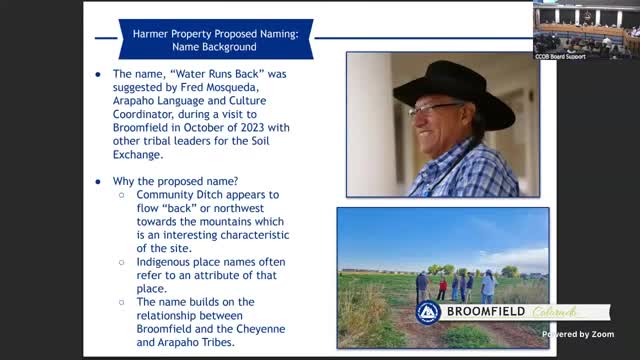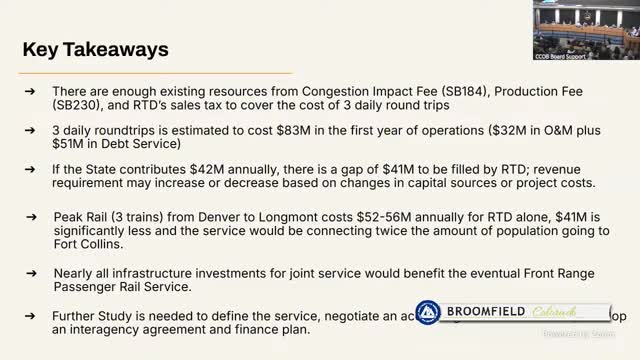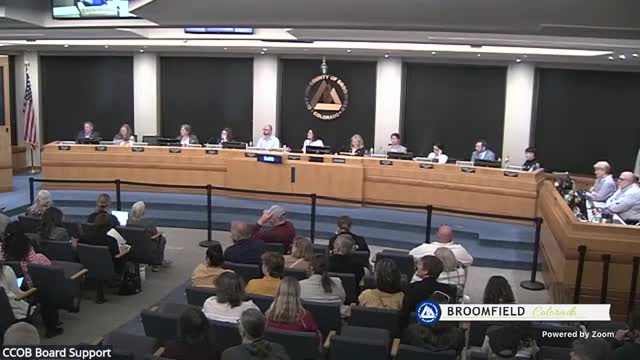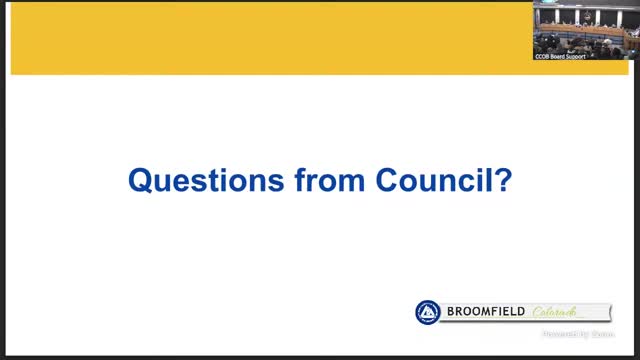Article not found
This article is no longer available. But don't worry—we've gathered other articles that discuss the same topic.

Council votes to censure member after heated private email; members split on free‑speech and process

Council approves Broomfield Town Square business improvement district and urban renewal plan; tax‑sharing agreements and URA amendments also approved

Broomfield housing task force requests $15,000–$20,000 poll to test voter appetite for $10M/year local housing measure

State advisers say starter Front Range passenger rail is financially feasible with existing fees; local funding gap remains

Trash contractor addresses rollout problems and says 16,000 carts deployed; city staff to review ordinance adjustments

